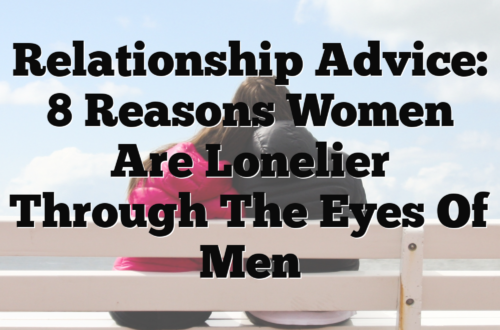
I get it. You love going out, meeting new people, and soaking up energy from being around others. And then, there’s your partner, who enjoys the quiet, maybe loves to read, or just hangs out at home.
And you’re thinking, “How can we make this work?” Well, I’ve got some thoughts and tips that might just help!
Let’s help you and your partner find the perfect balance between loud and quiet, together and alone. Whether it’s planning the perfect date or finding out the best way to support your partner, we’ve got great tips and tricks up our sleeves.
Follow along, and let’s get into it!
Communicate Openly and Directly
Let’s talk about talking. You might find it easy to talk about anything and everything if you’re an extrovert. Your introverted partner, however, might need a little more time to open up.
Here’s how you can make it easier:
- Ask simple, clear questions about their feelings and thoughts.
- Focus on listening. Hearing what they say is as important as talking.
- When sharing your own thoughts, be honest but gentle.
Encourage your partner to share too. Sometimes, they might take a bit longer to open up. That’s totally fine. The goal? To make both of you feel comfortable sharing anything.
Be Patient and Understanding
Introverts often take more time to make decisions or feel ready to join in on social activities. This isn’t because they don’t want to spend time with you; they just need time to think it over.
Being patient doesn’t mean stopping your life for them. It’s about enjoying the calm moments—like quiet mornings or unplanned coffee breaks. And understanding that these moments are valuable too.
Try to see things from their perspective. You get energy from being around others; they recharge in solitude. The beauty of being together is learning from each other and growing stronger.
Respect Their Need for Quiet Time
As an extrovert, you might find energy and joy in being around people, but it’s different for your introverted partner.
Introverts feel recharged and happy when they have some time to themselves. It’s like pressing a reset button that helps them feel ready to enjoy time with others again, including you.
Here’s how you can support their need for quiet:
- Plan quiet time: Talk with your partner about when they’d like some alone time. It could be before a social event or just a regular part of their day.
- Create a peaceful spot: Make sure there’s a cozy and quiet place in your home where your partner can go to relax and recharge.
- Don’t make it about you: When your partner wants alone time, it’s about their need to recharge, not about their feelings toward you.
Give Them Space to Open Up
When your partner is an introvert, they might take a bit longer to share their thoughts or feelings. It’s like they need a bit more time to sort through their thoughts before they can put them into words. That’s totally okay.
Here are tips to help:
- Let them start conversations when they’re ready.
- Avoid asking too many questions all at once; it can feel overwhelming.
- Create a calm environment where they feel comfortable talking.
For example, if you sense they had a rough day, you might say, “I’m here if you want to talk about it, but no pressure. We can also just sit quietly together.” This approach makes it clear you’re there for support, whichever way they prefer.
Engage in Deep, Meaningful Conversations
Introverts often prefer conversations with depth over small talk. So, when you do talk, make it count.
Talk about your dreams, fears, the things that make you both laugh and what inspires you. These kinds of discussions bring you closer and make your introverted partner feel understood and connected to you.
Key points include:
- Choose topics that spark interest and curiosity.
- Show you’re listening by focusing and responding thoughtfully.
- Don’t be afraid to open up about yourself, as this can build trust.
Be Mindful of Their Limits in Social Settings
Parties and big gatherings can be tough for introverts. They might enjoy them but get tired more quickly.
Being mindful of their comfort level in social situations shows you care and understand. Before going to an event, chat about what to expect, who will be there, and how long you might stay.
Tip: Agree on a secret sign they can use if they start feeling overwhelmed and need a break. This plan allows them to feel in control and understood, ensuring a better experience for both of you.
Discuss Expectations Early On
Right from the start, it’s smart to talk about what each of you expects from the relationship. This doesn’t have to be a big, serious chat. It can just be a simple conversation where you share what makes you happy, how you like to spend your time, and what you need from a partner.
For example, if you love being around big groups of people but your partner prefers quieter settings, acknowledging this difference early can help you plan activities that make you both happy.
Find Common Interests to Enjoy Together
Finding things you both like to do can make your relationship more fun. It’s great when you can enjoy hobbies, sports, or other activities together. These shared interests bring you closer and make your time together special.
- Make a list of things you both enjoy or are curious about trying.
- Be open to exploring new hobbies together—you might stumble upon something you both love.
- Focus on enjoying each other’s company, no matter what you’re doing.
If you both find out you love nature, planning hikes or walks can be more than just exercise; it’s a chance to talk, explore, and experience new things together, creating lasting memories.
Plan Intimate and Low-Key Dates
Planning quieter, more personal dates can be really meaningful, especially for introverts. These kinds of dates allow for deeper conversation and a chance to connect on a more personal level.
Here are some ideas for quiet dates:
- Have a picnic in a peaceful place where you can enjoy nature without too many people around.
- Watch movies at home with cozy blankets and your favorite snacks.
- Visit a small cafe or art exhibit where it’s quiet and you can talk easily.
Balance Social Activities with Downtime
Finding the right mix of going out and staying in is a big deal when you’re with an introvert. They can enjoy social events but also need time on their own to relax and recharge their batteries.
Here’s how to keep the balance:
- Plan ahead for social times, and make sure to follow them with a day or two of rest.
- Talk and decide together which social events are a must and which can be skipped.
- Enjoy the quiet times as much as the lively ones.
Tip: If you go to a big party together, plan a quiet day after. Maybe watch movies together or enjoy a quiet walk in the park. This way, no one feels too stressed, and both of you get to recharge.
Appreciate Their Listening Skills
Introverts are often great listeners. They pay attention to what you say, think deeply about it, and give thoughtful responses. It’s like having someone in your life who’s not just hearing your words but truly listening to what’s behind them.
To show your appreciation:
- Say thank you when you notice how attentively they listen.
- Talk about how their listening makes you feel understood and supported.
- Return the favor by listening well when they speak.
Learn Their Comfort Zone and Encourage Gradual Steps Beyond
Every person has a comfort zone, and for introverts, stepping out can be challenging. However, gentle nudges to try new things can help them grow and enjoy new experiences.
Maybe your partner is nervous about going to a large gathering. You could start by suggesting a small get-together with a couple of close friends. When they see they can enjoy that, it might give them the confidence to try slightly bigger social settings in the future.
Remember: It’s important to do this with care and never force them into uncomfortable situations. Keep it low and fun.
Be Open to Compromise
In a relationship, sometimes you give a little, and sometimes you get a little. This is what compromise is all about. When one person is extroverted, and the other is introverted, finding a middle ground is key.
Key tips for compromising:
- Talk about what’s most important to each of you, and try to give a little on less crucial things.
- Recognize when your partner steps out of their comfort zone for you and do the same in return.
- Remember that making small changes for each other can lead to a happier and more balanced relationship.
Value Quality Time Over Quantity
Spending time together is great, but what really matters is how that time is spent. It’s about making the hours count by being present and connected during the moments you share.
This could mean turning a regular meal into a candlelit dinner or turning off your phones when you’re together to connect with each other truly. Quality time is like a special ingredient that makes your relationship stronger and more intimate.
Acknowledge and Respect Their Preferences
Showing you understand their choices is a sign of respect.
When you’re dating an introvert, it matters a lot to know what they like and don’t like. It’s about paying attention to the little things, like preferring a quiet coffee shop over a busy mall.
- When they tell you about their likes and dislikes, show that you’re listening.
- Don’t pressure them into situations they’re not comfortable with.
- Choose things to do together that both of you can enjoy.
Encourage Solo Time for Both Parties
It’s great for both of you to have some time alone. It lets you both do things you like and then bring new energy back into your relationship. Everyone needs a little space sometimes.
- Spend some time apart doing your own favorite activities.
- Understand that wanting alone time is normal and not something to be upset about.
- Talk about how having time to yourselves actually makes your relationship stronger.
For example, spend a Saturday morning doing your favorite things separately. You might like to read, and they might want to paint. Later, you can share what you did and enjoy time together even more.
It’s just as important for your partner to know that you like to hang out with friends as it is for you to understand their need for quiet. It’s about making sure you both get what you need.
How to talk about it:
- Tell them why hanging out with friends or going to events makes you happy.
- Explain that it doesn’t change how much you enjoy being with them.
- Plan your fun times with others ahead of time. This way, they won’t feel surprised, and they can get ready for it.
Tell them about a plan with friends in a few days, and explain why you’re excited. You can agree on the best way for both of you to have fun by talking about it.
Give Reassurance and Affection Privately
Introverts often prefer receiving love and reassurance in more private settings. It’s like giving them a secret promise that’s just between the two of you. Think about ways to show love that make them feel the most comfortable and valued.
- Write them love notes that they can find in their book or by their bedside.
- Spend quality time together at home, doing things you both enjoy.
- Offer verbal reassurance about how much you value and appreciate them when you’re alone together.
Maybe your partner feels a bit out of place at a big family dinner. A quick, reassuring squeeze of their hand under the table can mean the world. It shows you’re there with them, and for them, no grand gestures are needed.
Celebrate Your Differences
Just like two pieces of a puzzle that fit together perfectly, your differences can actually make your relationship stronger. It’s all about seeing these differences not as obstacles but as opportunities to learn and grow together.
Consider how your outgoing nature can encourage your partner to try new things while their love for quiet moments can help you appreciate slowing down. Celebrating these differences can enrich your relationship in unexpected, wonderful ways.
Recognize Their Non-Verbal Cues
Sometimes, what your partner doesn’t say is just as important as what they do say. Paying attention to their body language and other non-verbal signals can help you understand their feelings and needs without words.
Keep an eye out for:
- Their energy levels. If they look drained, they might need some downtime.
- Their facial expressions. A frown or a distant look could mean they’re feeling uncomfortable.
- Their posture. If they’re shrinking away in a crowd, they might need a quiet exit.
Taking cues from their body language and acting on them shows you understand and care about their comfort.
Create a Safe Space for Sharing
Talking about deep, personal things isn’t easy for everyone.
Making sure your partner feels safe enough to open up is like giving them a comfortable place to rest. A safe space means they know their thoughts and feelings are respected and won’t be judged or dismissed.
Let’s say they share a story about their childhood that’s a little embarrassing. By listening and not making fun of it, you’re showing them it’s safe to be vulnerable with you.
Limit Surprise Social Outings
For someone who’s an introvert, surprise parties or unexpected group hangouts can be stressful. They often need time to mentally prepare for socializing. Instead of surprising them, planning these events together ahead of time is better.
Ways to keep surprises fun and not stressful:
- If you want to organize a get-together, talk about it beforehand. Make sure they’re on board.
- When planning, ask how they feel about the idea and what would make them comfortable.
- If friends want to hang out at the last minute, check with your partner first. They’ll appreciate you asking.
Offer Recharge Time After Parties
After a fun time at a party, your introverted partner might need what’s called ‘recharge time.’ This is their chance to relax and get back their energy after being around a lot of people.
What you can do to help:
- Plan ahead so that you’ll both have a quiet day after a party.
- Encourage them to take some time for themselves, doing whatever helps them unwind.
- Join them in relaxing activities, like reading or watching a movie, if they like.
For example, say you both had a great time with friends last night. The next day might be perfect for a peaceful day at home where they can just chill and feel refreshed.
Understand Silence is OK
Not all silence is awkward; sometimes, it can be pretty comfortable. For many introverts, it’s a comfortable state where they feel at ease. Silence lets them think and just be present, enjoying the moment without needing to fill it up with words.
Think about those times when you’re both just sitting, maybe sipping tea or looking at the stars. The room is quiet, but it’s a peaceful, happy quiet. This silence is a shared experience, showing that you’re comfortable just being together without needing words.
Encourage Their Interests and Hobbies
Supporting your partner’s hobbies and interests shows you value what makes them happy. Encouraging them to spend time on activities they love not only helps them grow as an individual but also brings fresh energy and happiness into your relationship.
How to encourage your partner:
- Ask about their hobbies and show genuine interest, even if it’s just listening as they talk about it.
- Get them little things that might help with their hobby, like a new book for a reader or some paintbrushes for an artist.
- Plan ‘hobby days’ where you both spend time on your own interests.
You might not be into model trains or knitting, but seeing their face light up when they’re in the middle of their hobby—that’s pretty special. It’s all about valuing the things that make them happy.
Don’t Push Them to Socialize
It’s important to remember that not everyone jumps at the chance to be in a crowd or at a busy social event. If your partner is an introvert, it’s best not to force them into socializing more than they’re comfortable with.
What you should keep in mind:
- Respect their decision if they’re not up for going out.
- Understand that staying in can be just as fulfilling for them as a party is for you.
- Encourage, but never force. If they say no to an invitation, let that be okay.
Respect Their Need for Advance Notice
Springing sudden plans on someone who values their quiet and routine can be jarring. Having advance notice about social events or changes in plans gives them time to mentally prepare.
Let’s say you’ve got a family dinner on the weekend. Telling them about it a few days beforehand can help them adjust their mindset and, possibly, look forward to the event as much as you do
Respect Their Way of Showing Love
Everyone has their own unique style of expressing love. Introverts might show it more quietly, like doing chores without being asked or preparing your favorite meal. It’s like whispering instead of shouting—they’re saying “I love you” in their own way.
Notice and cherish these actions:
- Thank them for the things they do, and let them know you see their love in their actions.
- Reflect on how they improve your life, even if they seem small.
- Remember that love isn’t always loud. It’s often in the quiet, everyday things.
Introduce Them Slowly to Friends and Family
Meeting new people can be overwhelming for introverts. When it’s time to introduce them to your friends and family, doing it gradually can help them feel more comfortable.
- Start with small gatherings or one-on-one introductions rather than big family events.
- Give your partner plenty of information about the people they’re going to meet.
- Stay close to them during these introductions to provide emotional support.
For example, if you want your partner to meet your family, consider having a quiet dinner with just a parent or a sibling first rather than a large family gathering. This slower introduction helps your partner feel less overwhelmed and more connected to each new person they meet.
Educate Yourself on Introversion
The more you understand introversion, the better you’ll be able to support your partner. This knowledge can help you see things from their perspective and make your relationship stronger.
Spending time to educate yourself shows your partner you’re committed to understanding them. It’s also a great way to learn strategies for navigating social situations, downtime, and communication in ways that respect both of your needs.
Frequently Asked Questions
Can extroverts and introverts have a successful relationship?
Absolutely! Extroverts and introverts can complement each other beautifully. With understanding, communication, and respect for each other’s needs, such relationships can offer a wonderful balance of energy and quiet, adventure and reflection.
How can I show love in a way that my introverted partner appreciates?
Pay attention to the subtle, thoughtful ways your partner shows love and mirror these gestures. Small, meaningful actions often speak volumes to an introvert. Regularly express appreciation for these gestures to reinforce your bond.
Is it okay to leave my introverted partner at home while I go out?
Yes. Everyone has different social needs, and respecting and accommodating those differences is key to a healthy relationship. Feel free to enjoy your social activities while your partner spends time on their own. It’s a sign of trust and independence in your relationship.
How do I know if my partner wants more alone time?
If your partner is an introvert, they might need regular periods of alone time to recharge. You can tell they might want some space if they’re quieter than usual, or they retreat to a quiet spot. The best way to know is to ask them directly in a caring and non-intrusive way.
Final Thoughts
When you think about it, being with someone who isn’t exactly like you is what makes a relationship exciting. It’s about seeing the world through their eyes, learning new things, and finding a middle ground.
Remember, it’s okay to be different. What’s important is that you both care and try to understand each other.
So, let’s keep things simple. Listen, respect, and show love in the ways that matter most. With a bit of patience and lots of understanding, you’ll find that your differences are what make your relationship special.




